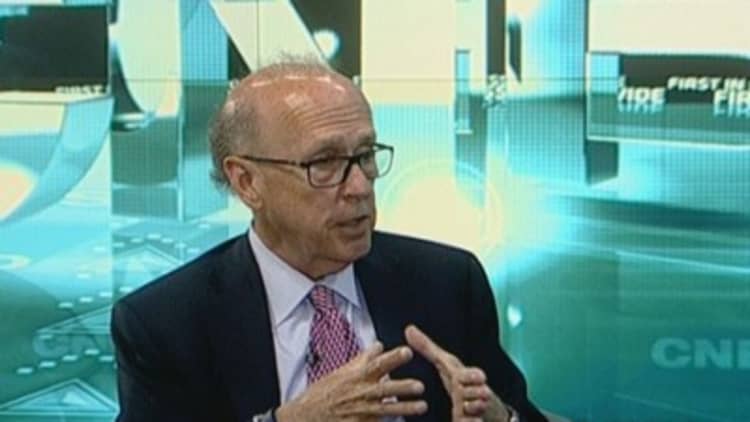The top US trade official has warned China that a proposed bilateral investment treaty and other global negotiations could be in jeopardy if the two sides fail to resolve a stand-off over liberalizing the $2 trillion annual trade in high-tech products.
In an interview with the Financial Times, Mike Froman, the US trade representative, said Washington was eager to use this week's annual US-China Strategic and Economic Dialogue to break the deadlock over updating the 1996 Information Technology Agreement.
A failure to get a deal on trade in IT would amplify opposition in the US Congress to other trade deals with China, according to US officials. It would also be "an important data point as to other negotiations that China may be interested in as well," Mr Froman added.
Read MoreIMF sees no brutalslowdown in China
The stand-off has hinged on China's push to exclude around 60 new product categories, including medical devices and next-generation silicon chips, from the ITA. Under the agreement, countries commit not to impose tariffs and other trade barriers on IT products.
Now the world's biggest exporter of IT products, China remains eager to protect some of its nascent high-tech industries, which are not yet competitive with those in the US and other developed markets.
Mr Froman said the US and China had made progress in negotiations both at, and since, an Apec trade ministers' meeting in May. Other people close to the talks said the discussions have narrowed to about a dozen product categories on China's long list that the US is particularly interested in including in the agreement.

But Mr Froman warned that a counter-offer by China last week had fallen short of US expectations and hard negotiations would have to happen in Beijing during the July 9-10 meetings between top US and Chinese officials.
Reaching a deal would "be an important, concrete manifestation of how we work together to address common interests coming out of the Strategic and Economic Dialogue next week," Mr Froman told the FT.
More from the Financial Times:
Wheels coming off the supermarket trolley
A leader to heal transatlantic tensions
Ukraine separatists vow to fight on
A "positive outcome", he said, would "contribute importantly to momentum" for negotiations on a bilateral investment treaty launched at last year's dialogue. Although the mooted investment treaty is heavily backed by business and China is now engaged in similar talks with the EU, the idea has been greeted skeptically by some in the US Congress.
Failure to secure a deal next week would also make it difficult to conclude the ITA negotiations in time for a November Asia-Pacific Economic Cooperation summit in Beijing that China is eager to bill as a success, according to US officials. At their summit last year in Indonesia, Apec leaders called for the "swift conclusion" of the ITA negotiations.
Any deal between the US and China would still need the backing of other ITA members, many of which have been happy for the US to take the lead in negotiations with Beijing.
Read MoreUS seeks cybertalks with China
China's commerce ministry did not respond to requests for comment.
Tu Xinquan, vice dean of the China Institute for WTO Studies, said other ministries had taken a "tough stance" internally on maintaining trade protections for a number of sectors that were not yet competitive with their US counterparts. "Because the US has an advantage in these core technologies, of course they want China to lower import taxes on them," Mr Tu said.
Jack Lew, the US Treasury secretary, this week said US officials would use next week's meetings to press China on what many economists see as the persistent undervaluation of the renminbi, the Chinese currency. Ties have also been strained in recent months by US allegations of Chinese cyberspying and what neighbors complain has been Beijing's aggressive territorial stand in the South China Sea.

